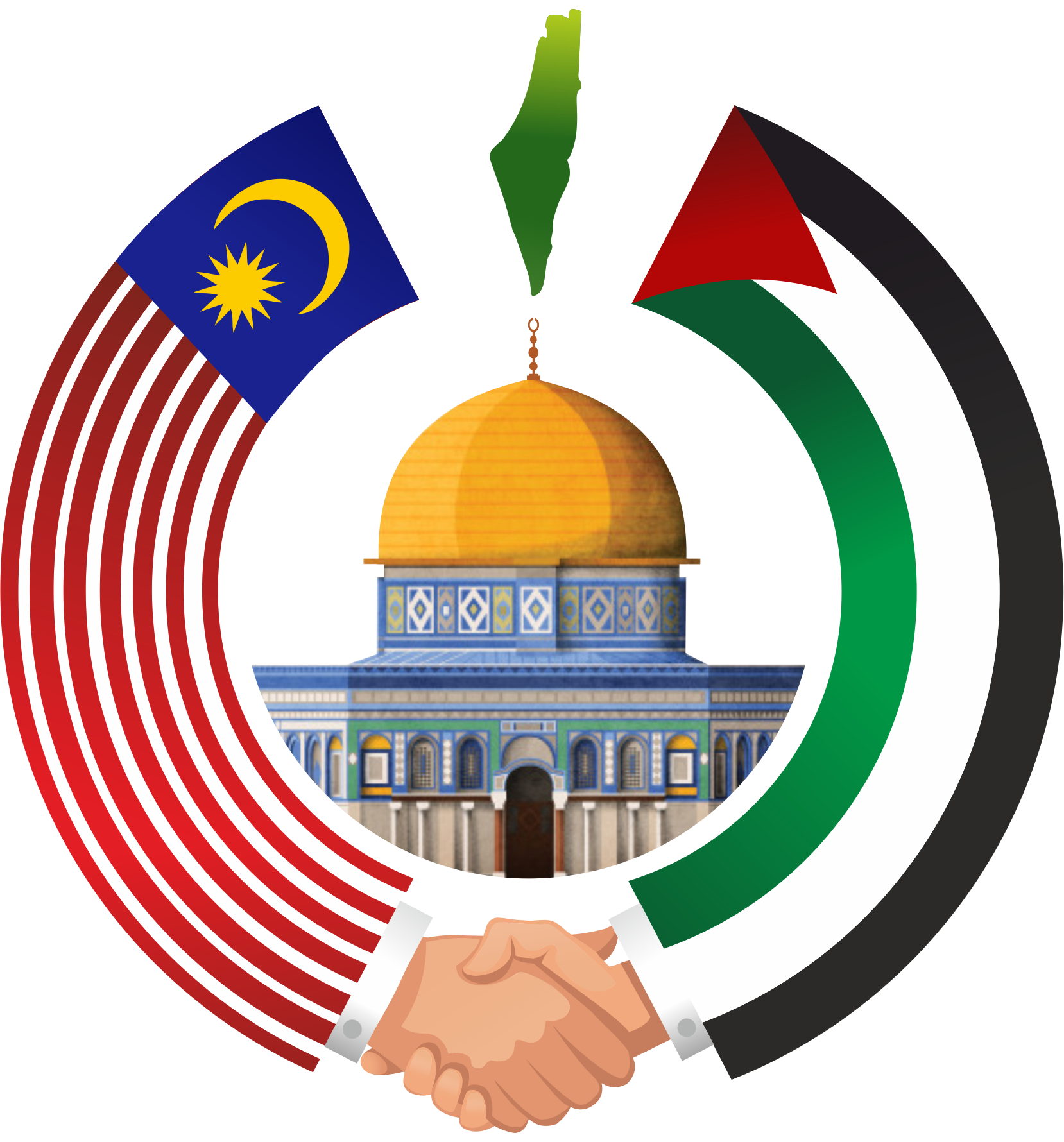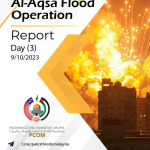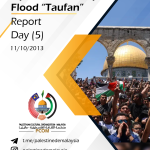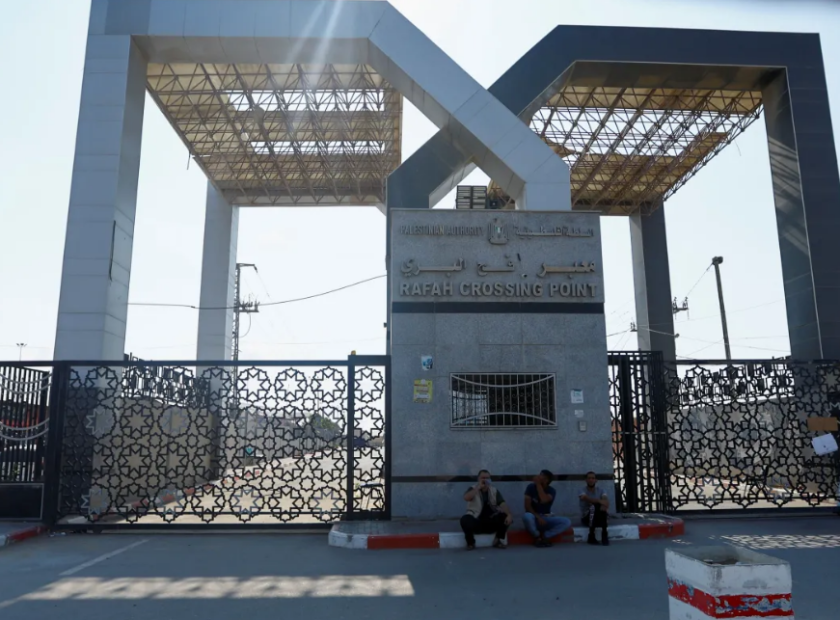The latest developments of the Israeli ongoing aggression on the Palestinian people
The Israeli occupation forces continue their airstrikes across the Gaza Strip and have ordered a complete cut-off of essential services, including water, electricity, and food, to the blockaded population of approximately 2.3 million people. As a result of these devastating airstrikes, numerous Palestinian families in Gaza have been forced to evacuate their homes, with Israeli strikes primarily targeting civilian areas and densely populated neighborhoods. Within the past 24 hours, the United Nations Relief and Works Agency (UNRWA) has reported a significant surge in the displacement of Palestinian families, affecting over 187,518 individuals, according to data from the United Nations Office for the Coordination of Humanitarian Affairs.
In response to these Israeli actions that have displaced Palestinians in Gaza, Hamas’ AlQassam Brigades launched hundreds of missiles at occupied Askalan, shortly after the deadline of 5 p.m. local time for Zionist settlers in occupied Askalan to evacuate had passed.
The Palestinian Ministry of Health has grimly reported over 704 martyrs and more than 3,900 injuries in the Israeli aggression on Gaza. Tragically, this includes the loss of three journalists, Saeed Al-Taweel, Mohammad Sobh, and Hisham al-Nwajha, who were martyred in an Israeli bombing that struck the western Gaza Strip and resulted in the
destruction of a residential building. These casualties have occurred amid intensified Israeli strikes across Gaza, leading to significant civilian casualties, with hundreds martyred and thousands injured.
Abu Obeida, spokesperson for Hamas’ Al-Qassam Brigades, has accused Israeli forces of carrying out retaliatory attacks and war crimes against Gaza’s civilians, largely due to their battlefield failures. He issued a stern warning that any Israeli targeting of Palestinian homes without prior notice would result in the execution of an Israeli captive, firmly holding the Israeli occupation entity responsible for its actions. This warning followed more than ten recorded massacres in Gaza, some of which tragically resulted in the killing of entire families.
Furthermore, Hamas’ political bureau leader, Ismail Haniyeh, has made it clear that discussions on a prisoner exchange will not take place while Israeli attacks continue. He emphasized that negotiations would only occur under conditions deemed acceptable by the resistance and conveyed this stance to all involved parties. Haniyeh also underscored the Palestinians’ unwavering steadfastness during Operation Al-Aqsa Flood, highlighting their
resilience against Israeli attempts to sow division among them. Concurrently, Israeli forces have confirmed more casualties among their soldiers and released a new list of 38 personnel killed as the Palestinian Resistance’s Operation Al-Aqsa Flood reaches its fourth day. Reports indicate that the Israeli military is continuously updating its casualty list, with Israeli media suggesting a death toll of 1,000 Israelis in the
ongoing operation.
International and Arab Support for Operation Al-Aqsa Flood
- Hundreds of Irish pro-Palestine activists protested at the Israeli embassy in Dublin, condemning the Gaza Strip bombings by Israeli Occupation Forces. They supported Palestinian rights to self-defence and praised the Palestinian Resistance. Irish Representative Richard Boyd Barrett criticized the double standards of the United States, European Union, and Ireland in supporting Ukraine but not fully supporting Palestinians’ right to resist occupation.
- The leader of Yemen’s Ansar Allah movement, Sayyed Abdul-Malik al-Houthi, expressed strong support for Operation Al-Aqsa Flood, emphasizing it as a legitimate Palestinian decision that surprised both allies and enemies. Al-Houthi declared the readiness of the Yemeni people to mobilize in large numbers to stand with the Palestinians, even willing to participate in missile and drone strikes if the situation escalates with direct American military intervention. He criticized the absence of support from the Organization of Islamic Cooperation and the Arab League and condemned the positions of some Arab countries that have normalized relations with Israel.
- Iranian leader Seyyed Ali Khamenei declared that Operation Al-Aqsa Flood on October 7th marked an irreversible military and intelligence defeat for the Israeli occupation. He emphasized that this event had significantly damaged the structures of the usurping regime’s governance. Khamenei credited the Palestinians for this operation, asserting that it was a significant step toward liberating Palestine, and he warned against underestimating the Palestinian people. He also stated that the operation was a response to years of Israeli occupation crimes and that portraying the oppressor as the oppressed is unjustifiable.
- North Korea’s state media, Rodong Sinmun, has accused the Israeli occupation of causing the brutal violence in Gaza. They cited foreign media reports and highlighted that the international community believes the conflict is a result of Israel’s ongoing criminal actions against the Palestinian people, emphasizing the need for an independent Palestinian state as a solution.





